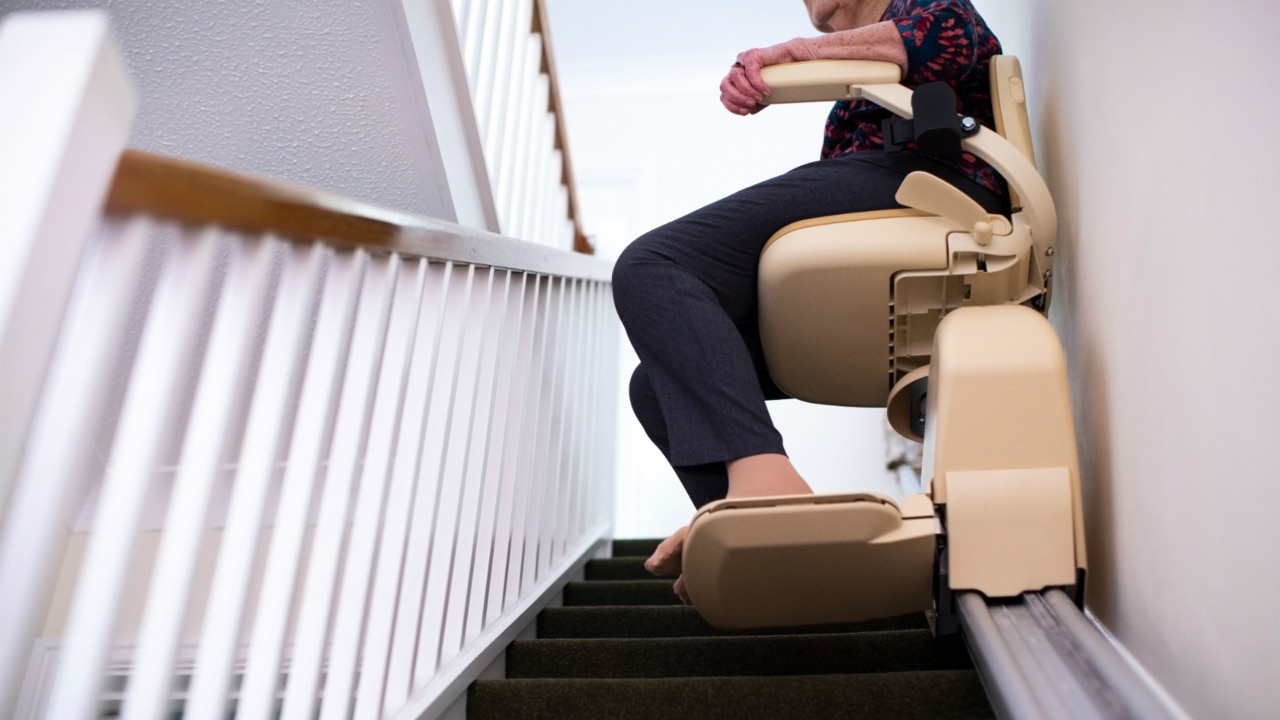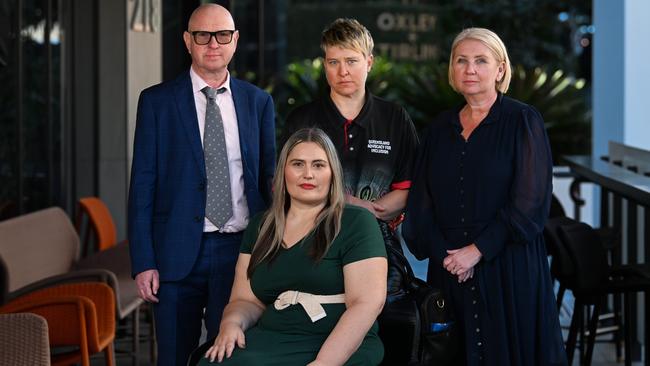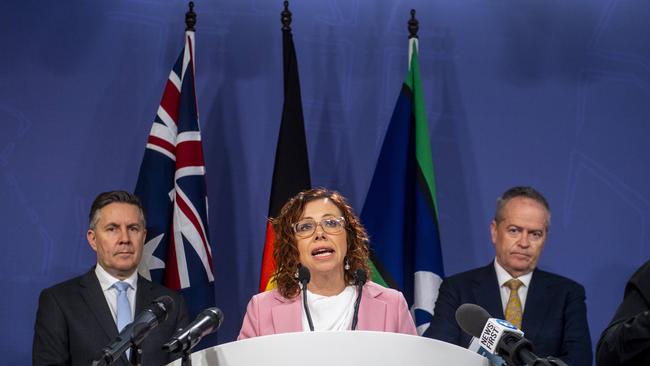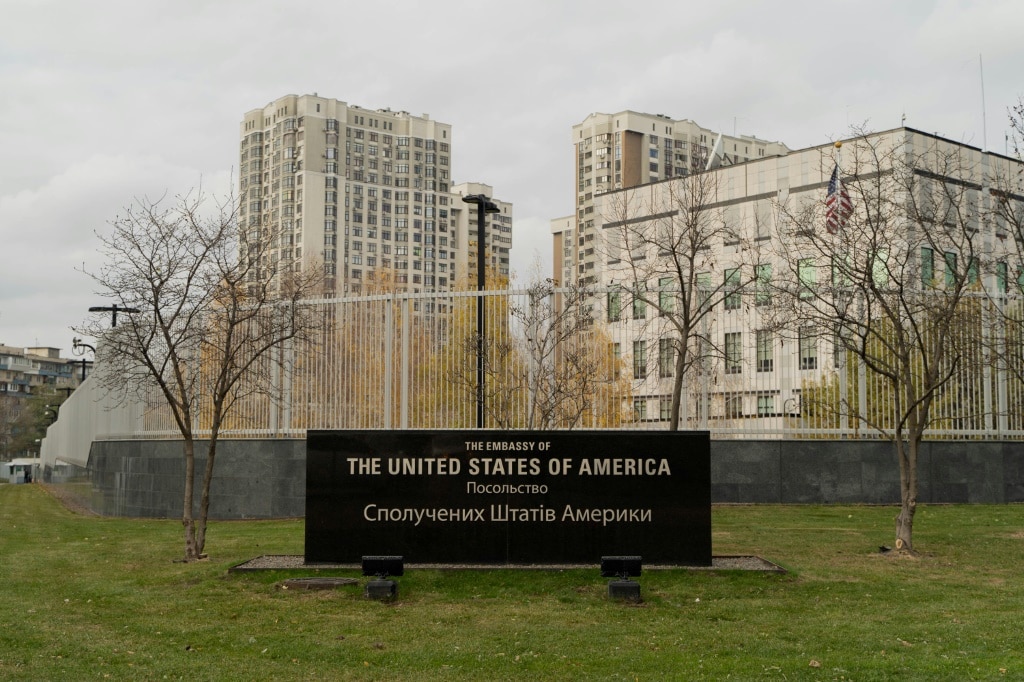Advocates ‘devastated’ by Albo’s disability royal commission response
Australia’s leading disability advocates have lashed out at the Albanese government’s response to the disability royal commission report.

Breaking News
Don't miss out on the headlines from Breaking News. Followed categories will be added to My News.
The head of Australia’s disability rights peak body has lashed out at the Albanese government, calling its long-awaited initial response to the disability royal commission’s landmark report “completely disproportionate”.
Marayke Jonkers, president of People with Disability Australia, told a press conference on Wednesday the government had failed to give a timeframe for much-needed “meaningful change”.
“Today, us and our members are devastated, disappointed and completely caught off guard with the response to us sharing our stories over 7000 submissions,” Ms Jonkers said.
“Only 13 recommendations accepted is completely disproportionate to their neglect and abuse that is being experienced and shared.

“We didn’t really have that trauma and violence for our benefit.
“We wanted to see meaningful change, and there isn’t a clear timeframe for that happening, to really make sure that this doesn’t happen again.”
Ms Jonkers highlighted the government’s failure to commit to enshrining disability rights in either a disability rights act or a human rights act.
She acknowledged there was some debate over which path to take, but stressed legislative action was key to “moving forwards.”
In its response earlier, the government said it was still considering whether to establish a Disability Rights Act that would guarantee the international human rights of people with disabilities in Australian law.
Social Services Minister Amanda Rishworth said the government has not yet committed to one because of differing thoughts in the “disability community”.
She said the government was weighing up whether to propose a stand-alone disability rights Act, or enshrine disability rights in a broader human rights Act.

Ms Rishworth, NDIS Minister Bill Shorten and Health Minister Mark Butler jointly announced the federal government’s response on Wednesday.
The federal government has primary or shared responsibility for 172 of the 222 recommendations.
It has accepted in full 13 of those recommendations, and in principle a further 117.
The government on Wednesday announced an extra $370m for the sector on top of the $3bn allotted in the past three budgets.
Of the new funding, $227.6m would be spent to implement a new specialist disability program.
States and territories have also released their responses on Wednesday.
The shocking report, published last September, was the culmination of 4½ years of investigation and nearly 10,000 testimonies to the $600m Royal Commission into Violence, Abuse, Neglect and Exploitation of People with Disability.
It exposed widespread rates of abuse and neglect being experienced by millions of Australians living with disability.
Key recommendations included how to stop the violence many people with disability are subjected toreform of disability service providers, changes to the law, increased access to support and leadership of people with disability in driving these changes.
“There is little concrete commitment or funding for any of these areas,” a statement from representatives of Australia’s disability groups said.

Among the report’s recommendations was a call to end segregated schooling by 2051, while the six commissioners were split on whether or not to phase out group homes.
The peak body for people with disability, People with Disability Australia, called for the government to consider 19 policies in response to the royal commission’s recommendations.
Among them were a Disability Rights Act, a Minister for Disability Inclusion, a time frame and transition plan to phase out segregated housing, education, and employment, and a redress scheme.
Ms Rishworth said the call for a separate disability minister in government was considered unnecessary.
“You have got two ministers in cabinet for disability, myself and Minister Shorten, but as I have highlighted, this has touched 16 ministers and assistant ministers,” she said.
“I think it is important if we are going to shift the dial when it comes to disability inclusion in this country, there is a responsibility on every minister in the commonwealth along with states and territories.”
Mr Shorten said the government’s initial response to the report would be a driving force towards a safer, accessible and inclusive Australia.
“This is another watershed moment to stop the abuse of our fellow Australians, but there’s a lot of work to go on from here,” he told reporters.

“But I believe this will sign post the directions we seek to take as a nation and the better treatment and true equality of people with disability in Australia.”
Ms Rishworth said the government’s response was an important step to realising the vision for an inclusive Australia where people with disability can live with dignity, equality and respect.
“Ensuring people with disability are at the centre of the work we do is paramount and,
importantly, our government did not wait for the findings of the royal commission to begin
significant investment into improving the lives of people with disability in Australia.
The commissioners described systemic rates of violence and discrimination facing about 4.4 million Australians, highlighted shortcomings across all levels of society and handed down 222 recommendations for governments.
The recommendations included a response from the disability ministers and federal and state level to respond to the report by March 31.
The Commonwealth and the states and territories then announced in March they would defer their response till mid-year.
* If you are concerned about the abuse and neglect of people with disability contact the
National Disability Abuse and Neglect Hotline – which is a free, independent and
confidential service for reporting – on 1800 880 052.
Originally published as Advocates ‘devastated’ by Albo’s disability royal commission response




